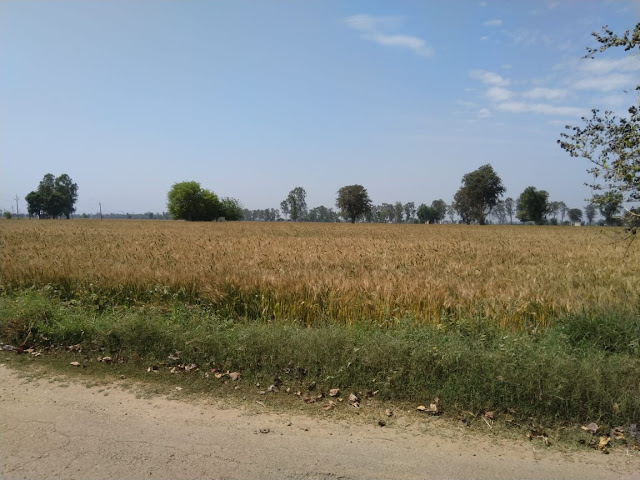This is Why Poor People Remain Poor
Standing at a bus shelter recently, I was witness to an interaction which had me thinking deep. An able bodied young man in frayed clothes, requested Rs. 50 from his acquaintance to take care of a necessity. The latter, after a sermon and some mockery, handed him the loan. Swallowing disrespect, the young man moved away. Sermons on hard work are easier given, I thought.
A Scenario
Let’s call this poor young man Moh. His shabby appearance suggested that he came from a cramped, smelly, and heavily shared accommodation. He must be looking for a decent job. My mind tried to piece together reasons for the young man’s poverty, in an extreme way.
"Moh must have come from an unsound home with an abusive/alcoholic father, an illiterate mother who probably didn’t understand his emotional changes as a growing teenager and an insensitive community around him. The child might have gone to a school that had inadequate infrastructure and teachers; or worst, a teacher who must have humiliated and shoved him at some time in front of his classmates".
"Moh must have come from an unsound home with an abusive/alcoholic father, an illiterate mother who probably didn’t understand his emotional changes as a growing teenager and an insensitive community around him. The child might have gone to a school that had inadequate infrastructure and teachers; or worst, a teacher who must have humiliated and shoved him at some time in front of his classmates".
Poverty - Mother of Many Societal Defects
A landmark study “Poverty Impedes Cognitive Function” published in the journal Science, concluded that poverty reduces brainpower needed for navigating some areas of life. Poverty, itself, impedes a person’s ability to make good decisions about finances and life in general hurtling the person into a downward spiral.
Researchers found that financial hardships affect people's reasoning faculties. Lack of money or time imposes a cognitive load that saps attention leading to poor decision-making. For higher-income individuals, financial burdens don’t impose cognitive pressure as do they have the latitude to manage these stresses. The poor, on the other hand, often behave in less capable ways, which further perpetuates poverty.
Cycle of Poverty
 |
| Christophe Sellies - pixabay |
The poor get trapped into the vortex of poverty. For example, excessive borrowing reinforces the conditions of poverty. It may lead people to overdraw their account, forcing them to pay high overdraft fees. As money is always scarce, household purchases in retail quantities don’t permit them savings that are available on bulk or wholesale purchase. Inadequate electricity and water supply at home doesn’t help either. More so, in their low-paying repetitive jobs, they aren’t encouraged to think much, that could pave a way for their career progression. In the coming times, Digital Divide may further create despair.
The poor are great at performing specific tasks but their bandwidth depletes for other tasks. They are “often highly effective at focusing on and dealing with pressing problems. It’s the other tasks where they perform poorly” says Shafir in the article.
Stanford Marshmallow Experiment
In this famous study, children were presented the chance to eat a marshmallow. They could eat it right away or they could hold off and eat two later. It was seen that the children who grow up in poverty didn’t wait for the second marshmallow. Understood as a proof of the cycle of poverty, this study explained that the poor kids never learn to delay gratification, causing them to make bad decisions and hence they stay poor as adults.
In psychology, fundamental attribution error means the natural tendency of attributing someone’s behavior as part of their character – while excusing own behavior based on circumstances. An example: If I face bankruptcy, I’ll view myself as a victim of bad fortune – while others are bankrupt because they were spendthrifts! Here from, comes the urge to sermonize.
“Poverty is the worst form of violence” ― Mahatma Gandhi
 |
| Amber Clay - pixabay |
Beautiful motivational quotes and speeches on social media and internet, fail in extreme conditions. A financial literacy training won’t prepare the poor for exigencies of life, because he won’t be able to utilize the financial management tips on an income that is impossibly low to start with.
Whatever the complex reasons for poverty, the poor find the task of marching ahead in life more onerous than others.
Should our society merely shrug off their state and sermonize them to work harder? Should the society label them as too lazy to work or a victim of their own bad decisions? Should the ever increasing income inequality and disproportionate opportunities be not factored in while forming lofty opinions? Can state-mandated excellent primary education and primary healthcare help break this cycle of poverty?
Should our society merely shrug off their state and sermonize them to work harder? Should the society label them as too lazy to work or a victim of their own bad decisions? Should the ever increasing income inequality and disproportionate opportunities be not factored in while forming lofty opinions? Can state-mandated excellent primary education and primary healthcare help break this cycle of poverty?





Great article 🤝
ReplyDeleteHeat touching
ReplyDelete:)
DeleteGreat vision
ReplyDeleteThanks!
Delete